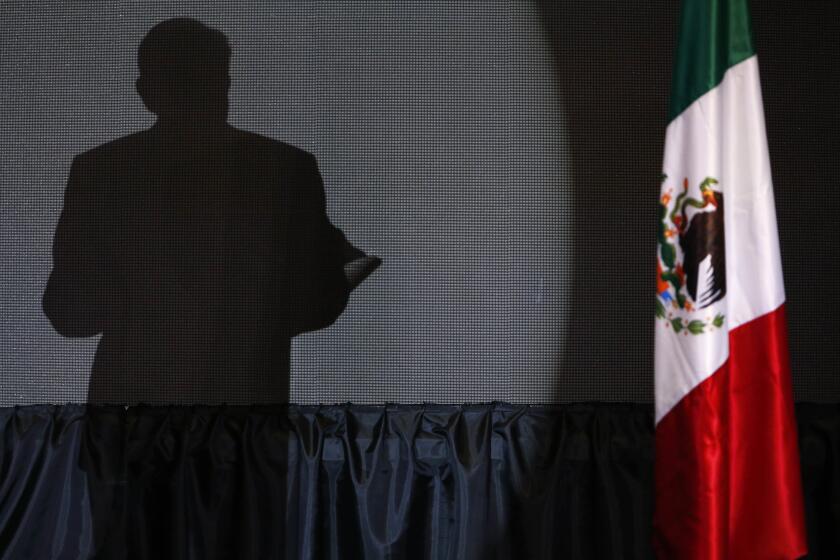Republican Complains of Secrecy
A high-ranking Republican lashed out at President Bush on Sunday, suggesting that the White House may have broken the law by failing to inform Congress of a “major” intelligence program and other undercover activities.
Rep. Peter Hoekstra (R-Mich.), chairman of the House Permanent Select Committee on Intelligence, complained that only after he had learned of several intelligence programs from a whistle-blower did he receive a briefing on them from the Bush administration.
“It is not optional for this president, or any president or people in the executive community, not to keep the intelligence committees fully informed of what they are doing,” said Hoekstra, who revealed no details of the programs, during an appearance on “Fox News Sunday.”
White House spokesman Alex Conant declined to comment on the programs but said the administration would “continue to work closely with the chairman and other congressional leaders on important national security issues.”
Hoekstra’s charges follow months of controversy over the public disclosure of key administration anti-terrorism efforts, such as the National Security Agency’s warrantless wiretapping of people in the United States and the monitoring of international bank transfers.
Hoekstra, who had been informed of those initiatives, wrote a letter to Bush in May -- disclosed in Sunday’s editions of the New York Times, complaining of being kept in the dark on several undisclosed programs.
A close White House ally, Hoekstra told Bush that the failure to disclose the information “may represent a breach of responsibility by the administration, a violation of law, and, just as importantly, a direct affront to me and the members of this committee.”
“The U.S. Congress simply should not have to play Twenty Questions to get the information that it deserves under our Constitution,” Hoekstra wrote.
Hoekstra also complained in the letter about the selection of the new No. 2 official at the CIA, Stephen R. Kappes, and about the growth of the Office of the Director of National Intelligence, which is supposed to coordinate U.S. intelligence-gathering activities.
“I am concerned that the current implementation is creating a large, bureaucratic and hierarchical structure that will be less flexible and agile than our adversaries,” Hoekstra wrote.
Hoekstra said Sunday that a whistle-blower had alerted the committee to the intelligence efforts. He said he then asked for the briefing by referring to the programs’ code names.
“There are lots of programs going on in the intelligence community. You know, we can’t be briefed on every little thing that they are doing,” Hoekstra said. “But in this case, there was at least one major -- what I consider significant -- activity that we had not been briefed on.”
Rep. Jane Harman (D-Venice), the ranking minority member of the intelligence panel, said Republicans had not shared their concerns with Democrats. She criticized Bush for not disclosing the existence of the programs sooner.
“Vigorous congressional oversight is impossible unless the administration shares critical information with the appropriate committees of Congress,” she said in a written statement.
The law requires that the committees receive briefings on all intelligence programs of the government, she said.
Lee Tien, a senior staff attorney with the Electronic Frontier Foundation, a civil liberties group, said in an interview Sunday that he was not surprised that other intelligence programs were operating outside of congressional oversight.
“What I should do is expect that anything I can think of that would be a useful unconstitutional operation is already taking place, and it’s just a matter of when we learn about it,” said Tien, whose group is suing AT&T; for sharing customers’ calling records with the National Security Agency for the administration’s domestic surveillance program.
Hoekstra and other Republicans in Congress need to do more than just complain about not being briefed, Tien said.
“At some point, you actually have to have a backbone.... Right now they haven’t shown any,” Tien said. “They’re not actually willing to use their political power, other than in letters.”
More to Read
Sign up for Essential California
The most important California stories and recommendations in your inbox every morning.
You may occasionally receive promotional content from the Los Angeles Times.











